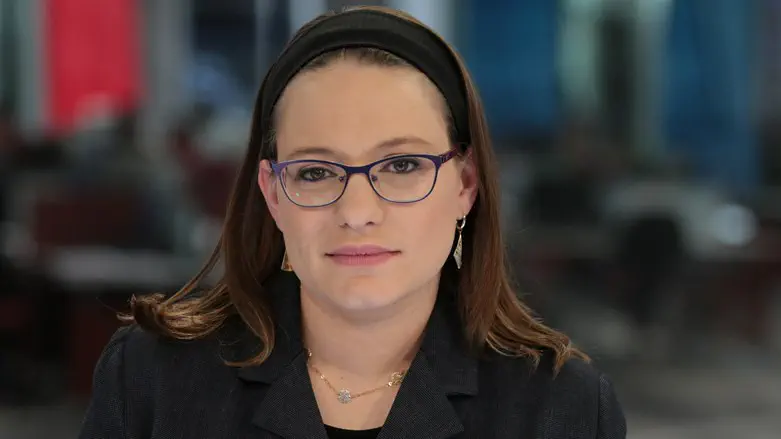
Translation by Yehoshua Siskin (http://inthelandofthejews.blogspot.com)
1. Where's your plate?
I first heard the following story from attorney Or Alon, the husband of Tzipi Hatovely, Israel's ambassador to the United Kingdom, after the couple met with the queen of England. I was reminded of the story this week in connection to our Torah portion with its details of the laws of kashrut that have dictated which plates and eating utensils we put on the table, as well as which foods we are allowed eat, for thousands of years.
"A rabbi was once invited to a function of the British royal family. In preparation for the event, he brought with him to the palace a plate, eating utensils, and his own food, in order to adhere to the laws of kashrut. He organized everything in his assigned place. But then, when everyone was about to eat, it was suddenly announced that all the guests must change places in order that everyone should get to know everyone else. So he picked up his plate and utensils and began carrying them to his new seat.
"There was a Jewish friend of his there who laughed at him: 'Why are you moving your plate and utensils? Kashrut is confusing, primitive, and you are embarrassing yourself in front of the queen.' And then, as the rabbi was going to his new place with his kosher plate and utensils, Prince Phillip stopped him and said: 'Sir, it's not necessary, there are utensils there, too.' The rabbi answered him: 'No, I am a Jew, we keep kosher.' This aroused Prince Phillip's curiosity, he asked questions, and then he called to the queen and said to her: 'You must hear this.' The rabbi began to repeat everything to the queen, while she and the prince stood in rapt attention listening to his explanations. Suddenly the Jew who had mocked the rabbi saw that he was speaking with the queen, approached in order to see what was going on, and said to the royal couple: 'You know, I am also a Jew.' The queen looked at him and said: 'So where's your plate?'"
Or Alon said that he was reminded of this story many times during the couple's diplomatic mission: "We do not always have to try to be like everyone else. People admire our uniqueness. Our heritage is not something to downplay or conceal, but rather something in which we can take pride.”
2. I'm not a robot... or am I*?
Are you familiar with the annoying rectangle that appears on your computer or cell phone screen with the "I'm not a robot" message? In order to proceed, we need to check a small box inside. Even though we have already answered this question in the negative hundreds of times, perhaps we really are robots.
In parashat Tzav which we read last Shabbat, there is a description of the duties of the Kohanim in the Mishkan. Among the various components of their service was the responsibility of maintaining a fire on the altar: *"A continuous fire shall burn upon the altar; it shall not go out."*
Rabbi Yoni Lavi writes about the expression "continuous fire" as follows: On the one hand it's a fire and its flame is variable. It flickers, changes colors, and aspires to go up. Yet, on the other hand, it is continuous. It is routine, permanent, quotidian, and perpetually consistent.
In his words, all of us operate sometimes on "automatic pilot." We are likely to do things out of habit, without thinking, because that's just the way it is or so we have been told. The most important aspects of our lives – marriage, learning, work, prayer, raising children – can be experienced without emotion or deep connection, by rote and in predictable sequence until 120.
We need to be aware of the danger of falling into habitual patterns, and instead try to take actual control of the steering wheel in our hands. To think before everything we do, to devote time and energy to finding flavor and freshness, and to understand that nothing should be taken for granted or minimized. Let's ask ourselves what we can do differently to enhance each moment, especially on Shabbat, but also on the morning ride with the kids to school and throughout the day, starting now.
We need to make every effort to declare: "I'm not a robot" or, in the language of the parasha, to light a "continuous fire" that burns throughout our lives.